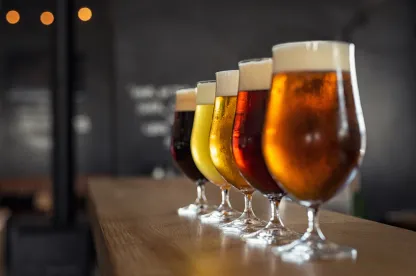Last month, the Seventh Circuit reversed a district court’s decision preliminarily enjoining Anheuser-Busch from making various advertising claims related to the absence of corn syrup in Bud Light, including that Bud Light has “no corn syrup,” that Molson Coors’s competing Miller Lite and Coors Lite beers are “made with” or “brewed with” corn syrup, and that Bud Light has “100% less corn syrup” than the Molson Coors beers. Molson Coors Beverage v. Anheuser-Busch, Case Nos. 19-2200 et al. (7th Cir. 2020). We previously blogged about the complaint in this case (the plaintiff was identified by its previous name, Miller Coors) and the case’s procedural history.
The thrust of Molson Coors’s challenge is that Anheuser-Busch’s claims about Bud Light, while literally true, imply that Miller Lite and Coors Lite contain corn syrup. Supposedly, those claims are misleading because corn syrup is merely used in the brewing process of Miller Lite and Coors Lite, but is not actually present in the final products. The district court opinion found Molson Coors had shown a sufficient likelihood of success on the merits to warrant granting a preliminary injunction.
The Seventh Circuit rejected the district court’s reasoning, observing that Molson Coors itself identifies corn syrup as an “ingredient” in both Miller Lite and Coors Lite. While Molson Coors argued that its list of “ingredients” differs from what the final products “contain,” the Seventh Circuit pointed out that testimony from some of the company’s own managers equated the two. Moreover, the Bud Light advertising and packaging did not claim that Miller Lite and Coors Lite “contain” corn syrup, but merely “made statements from which some consumers doubtlessly infer that some corn syrup avoids fermentation and makes it into the beer.” Given that Molson Coors’s own statements (in the form of ingredients lists) yielded the same inference, the court refused to enjoin Anheuser Busch’s claims, stating that “it is not “false or misleading . . . for a seller to say or imply, of a business rival, something that the rival says about itself.”
The Seventh Circuit’s opinion suggests that advertisers seeking to make comparative claims about competitors may be able to insulate themselves from a false advertising challenge by drawing on claims and disclosures made by the competitor. Watch this space for further developments.





 />i
/>i

